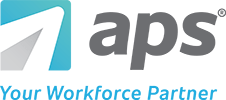Is your company struggling to recruit and retain quality talent? Or have you finally hired that dream candidate and are ready to fill the next open position? If you answered yes to the latter, don’t rest on your laurels just yet – your work isn’t over.
According to a 2018 Mercer study, a third of all employees plan on quitting their job in the next 12 months. How does your organization plan on retaining employees, particularly one-third of your workforce? What if there was a way to decrease your company’s quit rate while increasing employee productivity and engagement? In this article, we’ll discuss the up-and-coming trend of career pathing and the three main reasons why your company needs this tactic in your HR arsenal. We’ll also cover how you can implement this career development tool with the resources you’re already utilizing.
What is Career Pathing?
Career pathing is an employee development tool used to help individuals chart out their professional journey in an organization. Not to be confused with a succession plan, a career path is a personalized plan, rather than a standardized process for all employees. Employers can offer this tool to help current and new hires develop a career plan that breaks down the steps they need to take to reach their goals. These career steps can include specialized skills, positions, training, additional education, and required experience.
Below is an example of a basic career path for an individual starting their career as a salesperson and working their way to a marketing director position:
Salesperson to Marketing Director: Salesperson (Starting Position) – MBA (Additional Education) – Assistant Brand Manager (Skills, Experience) – Brand Manager (Experience) – Group Manager (Required Position for Promotion) – Marketing Director (End Career Goal)
The Current Climate of HR
Employers must now analyze the employee experience they offer individuals due to rising quit rates and decreasing employee engagement. HR leaders can no longer ignore the importance of career development once a new employee has been onboarded. Employees are demanding more from companies when it comes to guidance, transparency, and resources, whether they have been at the company for a short or a tenured amount of time.
HR leaders need to be aware of how their employees feel about career growth at their company. Sixty percent of HR professionals think they’re doing a good job giving a clear career path for employees, but only 36 percent of employees agree with that statement. The gap in agreeance shows a disconnect between what HR leaders believe their organization needs and what their employees are actually getting. Bridge the gap between your HR team and employees by implementing career progression to boost employee retention, productivity, and engagement.
Why You Need to Implement Career Pathing Right Now
Employee Retention
In the days of low unemployment rates and the rise of new workforce generations, employers are not only having trouble recruiting talent but keeping those employees in the company. In 2016, millennials became the largest generation in the workforce and businesses are seeing the effects of their presence with a huge emphasis on the employee experience. So it comes as no surprise that one of the common reasons employees leave their current role is due to lacking career training and career growth opportunities.
Only 7 percent of employees take positions within their current organizations to advance their careers, which speaks to a majority of companies’ employee experiences. If your employees don’t see the potential for professional growth in your organization, they’ll look for a company that offers an exceptional employee experience including career development, mentorship programs, and training tools. By providing these aspects of the employee journey, your workforce has an opportunity to thrive and learn. This benefits the individual employee and your organization. Employees are much more likely to be loyal to their employer if they know career development tools and opportunities are available.
Offering training and progression tools like career pathing can deter 86 percent of millennials from leaving their current position. It’s a no-brainer for developing your retention strategy to keep your largest workforce generation and top talent in your company.
Employee Productivity
If you could only work in your current role for the rest of your career with no advancement, would your productivity decrease or increase? It’s the question companies must ask themselves as many of their employees ponder this thought while completing the same work day in and day out. Employees are more likely to come to work excited about honing their current skills and learning new ones to help them reach their professional goals. When there are no growth opportunities available, employees become stagnant, diminishing productivity and quality of work.
Having a career plan for individuals gives them the motivation to work hard and reach each step in their ultimate career goal. The different career steps ensure the individual will be learning new skills, completing various projects, and acquiring valuable experience. Not all employees who start out in the same role or department want the same promotions or have the same ambitions, so it’s crucial to personalize career maps for individuals and work towards a goal important to them.
Employee Engagement
Employee engagement. A popular buzzword among those in the HR community, and an important one at that. Companies with poor employee engagement often see unsatisfied workers who don’t see their future with the organization or feel their company isn’t investing in them. They quickly become disengaged in their work, disconnect from other team members, and then eventually move on to their next job. By providing career advancement tools to help achieve their career objectives, employees are more willing to stay loyal to a company that invests in their growth.
Almost ninety percent of employees who are engaged are less likely to leave their jobs, so it’s imperative to implement career pathing into the employee experience. Professional development is an inexpensive opportunity to boost employee engagement by showing employees your commitment to their growth and success with the company. Individuals can work one-on-one with their manager to develop their career map in the organization. As a manager, you’ll have the ability to provide transparent, supportive coaching for individuals as they work towards their career aspirations. An engaging employee experience is one that includes a variety of opportunities along with the managerial guidance to choose the right path.
Start Seeing Happy, Committed Employees
It’s time to get serious about employee retention, productivity, and engagement at your company. You can’t afford to lose quality employees, and if they’re unsatisfied in their current position they may already be looking for greener pastures. Not sure where to start? Begin by developing career paths with a few employees and see what results come from those working towards their ultimate goal. After a few test runs, you can mold the career pathing experience to best meet the needs of your employees and organization. Whether you offer professional advancement to boost retention rates, productivity, engagement, or all of the above, you’re giving your employees the opportunity to take ownership of their career with organizational support.
How APS Can Help
APS brings innovation and scalability to modern workforce management. Our clients, their employees, and our partners deserve intuitive technology delivered with personalized service and support. APS understands the challenges organizations of all sizes face, which is why our unified payroll and HR solution is built to address all aspects of the employee lifecycle.
For more information, please visit www.apspayroll.com or call 855-945-7921.




